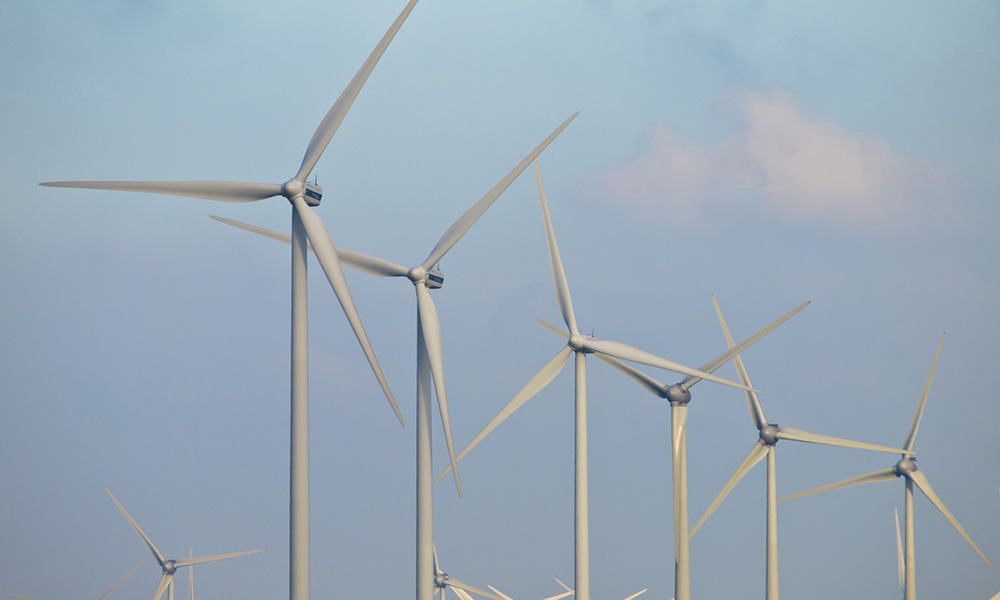
Wind Energy, Environmental Groups at Odds Over Eagle Rule
After the U.S. Fish and Wildlife Service’s recent decision to extend the wind industry’s permits to legally kill eagles up to 30 years, the American Wind Energy Association finds itself on the other side of the issue from its usual allies.
Weighing the interests of conservationists and alternative energy developers, the U.S. Fish and Wildlife Service has amended its Eagle Permit Rule allowing for the unintentional killing of eagles on wind farms. Environmentalists aren’t happy, but the American Wind Energy Association says it’s a fair balance.
This situation definitely isn’t for the birds.
A recent decision by the U.S. Fish and Wildlife Service (USFWS) concerning eagle deaths on wind farms is drawing opposition from uncommon allies—environmental groups and a Republican senator known for his criticism of the wind industry. Meanwhile, the American Wind Energy Association (AWEA) says it’s working with wind energy developers to protect eagles as much as possible.
Here’s the latest:
About the rule: Earlier this month, the USFWS amended the 2009 Eagle Permit Rule, which allows the unintentional killing of eagles by turbines on wind farms, extending the permit period from five years to as long as 30 years. Although golden and bald eagles aren’t currently on the endangered species list, it is otherwise illegal to kill either bird. The permits allow wind energy producers to “take,” or kill, a certain number eagles during a specified period, provided that measures to ensure the birds’ safety are in place. Under the new rule, the extended permits will be reviewed every five years to ensure compliance with the eagle protection provisions.
The industry’s stance: AWEA says industry efforts to protect eagles are ongoing, noting that wind turbines are responsible for only a small percentage of eagle deaths. “The wind industry does more to address its impacts on eagles than any of the other, far greater sources of eagle fatalities known to wildlife experts, and we are constantly striving to reduce these impacts even further,” the group said in a press release earlier this month. “In fact, the wind industry has taken the most proactive and leading role of any utility-scale energy source to minimize wildlife impacts in general, and specifically for eagles, through constantly improving siting and monitoring techniques.”
Eco groups raise concerns: Environmentalists are questioning the decision to allow the wind industry additional leeway. “This rule could lead to many unnecessary deaths of eagles,” National Resources Defense Council President Frances Beinecke said in a statement. “And that’s a wrong-headed approach.” The National Audubon Society (NAS), which focuses on the rebuilding of ecosystems, negotiated with the USFWS on changes to the rule, only to see a looser standard go through. “A 30-year permit is like a blank check,” NAS President and CEO David Yarnold told the New York Times. “It basically says you can go operate these wind turbines and kill as many eagles as happen to die.” USFWS Director Daniel M. Ashe defended the decision to The Times, saying that the rule helps ensure the future of the eagle population. “The conservation element [of the rule] is key,” he said. “We’re not going to authorize a permit unless we believe it provides for the conservation of eagles.”
Pressure rises: The rule change comes at a time when the wind industry is under pressure on the issue. In November, Duke Energy agreed to pay the federal government $1 million over the killing of 14 golden eagles and 149 other birds at two of its wind farms in Wyoming. The company admitted that it knew ahead of time that the way its wind farms were built would likely result in bird deaths. The settlement drew the ire of Sen. David Vitter (R-LA), a prominent critic of wind energy. The ranking Republican on the Senate Environment and Public Works Committee argued that the action against Duke Energy under the Migratory Bird Treaty Act was a token measure compared to the litigation that the oil and gas industries face under the same law. Vitter is also aligned with environmental groups regarding the Eagle Permit Rule, telling Politico: “Permits to kill eagles just seem unpatriotic, and 30 years is a long time for some of these projects to accrue a high death rate.”
Vitter accuses the Obama administration of instituting policies that favor wind energy developers over fossil fuel producers.
(iStock/Thinkstock)






Comments